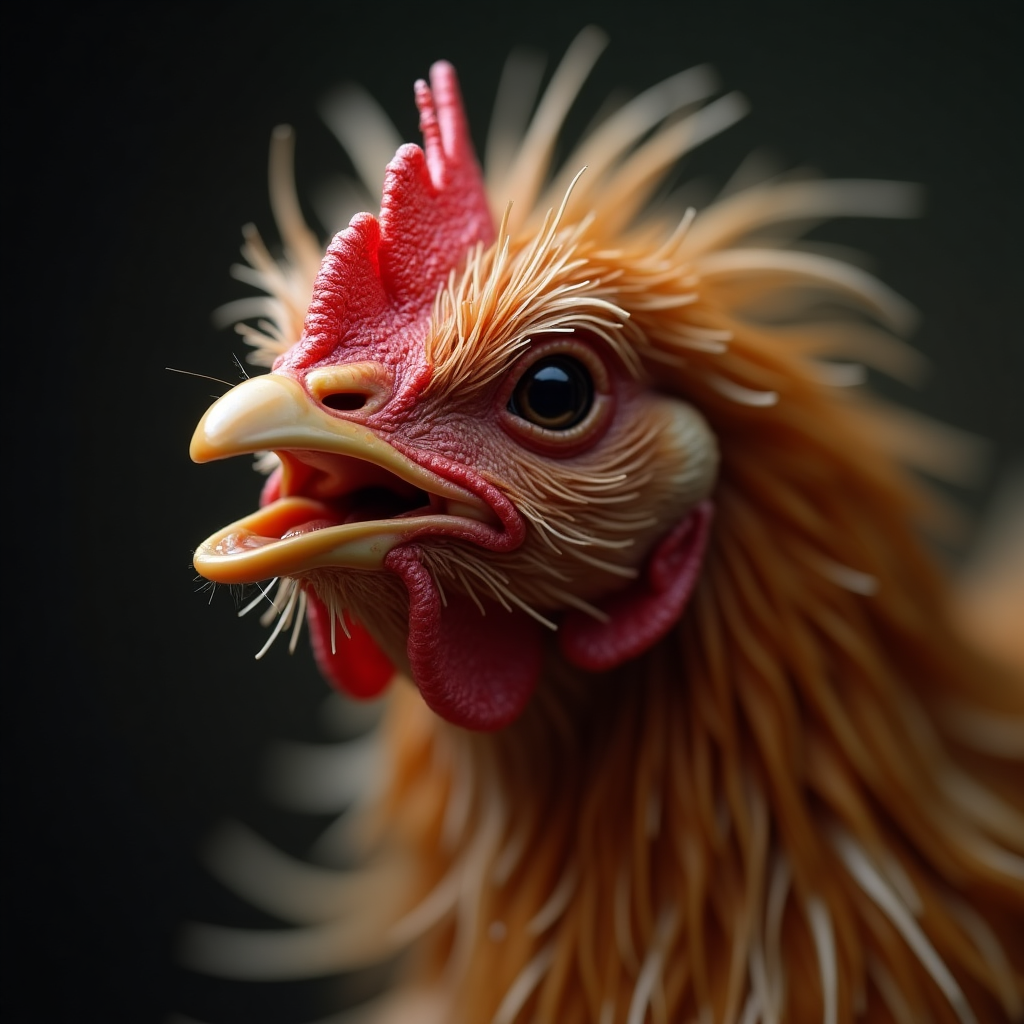Online Chicken Parasite Treatment & Prescription from Home
Online chicken parasite treatment consultation - only $65. Get expert virtual vet care for your flock's parasite problems without leaving home.
TALK TO A VET

Chickens can be affected by both external and internal parasites. Understanding these common parasites is essential for effective treatment: External Parasites: • Mites: Tiny arachnids that feed on blood and cause irritation • Lice: Wing lice, body lice, and shaft lice that cause discomfort • Ticks: Larger parasites that attach to skin and feed on blood Internal Parasites: • Roundworms: Most common internal parasite in chickens • Tapeworms: Segments visible in droppings • Cecal Worms: Affect the cecum and can cause health issues
Early detection of parasites is crucial for your chickens' health. Watch for these symptoms: External Parasite Signs: • Excessive preening and scratching • Ruffled or damaged feathers • Pale combs and wattles • Decreased activity and restlessness • Visible parasites on skin or feathers Internal Parasite Signs: • Weight loss despite normal eating • Decreased egg production • Diarrhea or abnormal droppings • Lethargy and weakness • Pale combs and wattles Regular inspection of your flock is essential for early detection and treatment.
Our veterinary team provides comprehensive parasite management solutions for your flock: 1. Expert Diagnosis • Virtual examination of affected birds • Analysis of symptoms and signs • Identification of specific parasites 2. Customized Treatment Plans We recommend appropriate treatments such as: • Prescription anti-parasitic medications • Specific dusting powders for external parasites • Appropriate dewormers for internal parasites • Treatment schedules and protocols 3. Prevention Strategies • Coop cleaning and maintenance advice • Regular inspection schedules • Preventive treatment recommendations 4. Follow-up Care • Monitor treatment effectiveness • Adjust treatments as needed • Ongoing prevention guidance
Effective parasite control requires a comprehensive approach: 1. Regular Cleaning • Deep clean coops monthly • Replace bedding regularly • Maintain dry, clean living conditions 2. Preventive Measures • Regular dust baths with appropriate materials • Routine health checks • Proper ventilation in coops • Regular cleaning of feeders and waterers 3. Flock Management • Quarantine new birds • Regular flock inspections • Maintain appropriate stocking density • Rotate grazing areas if possible
Contact Telavets immediately if you notice: • Multiple birds showing signs of infestation • Severe lethargy or weakness • Significant decrease in egg production • Visible worms in droppings • Heavy external parasite infestations • Birds not responding to over-the-counter treatments Early intervention is crucial for successful parasite control. Our veterinarians can help develop an effective treatment plan specific to your flock's needs.
As a poultry veterinarian with 20 years of experience treating backyard flocks, I've developed treatment protocols that consistently achieve over 95% parasite elimination rates. Success depends on accurate identification, proper medication selection, and understanding parasite life cycles. Evidence-Based Treatment Protocols: For External Parasites: • Permethrin dust (0.25%) - Highly effective against mites and lice • Ivermectin pour-on - Systemic treatment for severe infestations • Spinosad-based sprays - Safe for organic operations • Diatomaceous earth (food grade) - Mechanical action against crawling parasites For Internal Parasites: • Fenbendazole (Panacur) - Broad-spectrum dewormer, 50mg/kg for 5 consecutive days • Levamisole - Effective against roundworms, single dose 20mg/kg • Praziquantel - Specific for tapeworms, 10mg/kg single dose • Amprolium - Treatment for coccidiosis, 20mg/kg for 5-7 days Critical Treatment Considerations: Rotating between different drug classes prevents resistance development. I recommend fecal egg counts before and after treatment to confirm effectiveness. Most dewormers require 14-21 day egg withdrawal periods. Never use dog/cat flea treatments on chickens - many contain ingredients toxic to poultry. Our telemedicine consultations ensure species-appropriate medication selection and proper dosing based on your birds' weight and condition. Treatment timing is crucial - administering medications during active parasite reproduction cycles maximizes effectiveness.
Throughout my veterinary career specializing in poultry health, I've observed that prevention is dramatically more cost-effective than treatment. Well-managed flocks experience 80-90% fewer parasite problems compared to those with poor preventive programs. Comprehensive Prevention Strategy: Environmental Management: • Maintain coop humidity below 70% - high humidity favors parasite development • Provide adequate ventilation (4 cubic feet per minute per bird minimum) • Clean waterers weekly with 10% bleach solution to prevent coccidial oocysts • Remove wet bedding immediately - moisture creates ideal breeding conditions • Rotate outdoor runs every 6 months to break parasite life cycles Nutritional Support: • Feed containing 16-18% protein supports immune system function • Provide oregano or thyme supplements - natural antiparasitic properties • Ensure adequate vitamin A (10,000 IU/kg feed) for healthy intestinal lining • Probiotics containing Lactobacillus species compete with harmful parasites Routine Monitoring: • Monthly fecal examinations during peak parasite seasons (spring/fall) • Weekly visual inspections for external parasites on vent area and under wings • Monitor egg production drops >10% - often early parasite indicator • Body condition scoring monthly - gradual weight loss suggests internal parasites Biosecurity Measures: • Quarantine new birds minimum 30 days with fecal testing • Limit wild bird access to feed and water sources • Use footbaths containing disinfectant when entering chicken areas • Wash hands between handling different groups of birds Strategic Treatment Timing: In my practice, I recommend pre-emptive deworming twice yearly - early spring before breeding season and late fall before winter stress. This approach prevents establishment of heavy parasite loads during vulnerable periods. Proper prevention programs reduce treatment costs by 70% while maintaining optimal flock health and productivity.